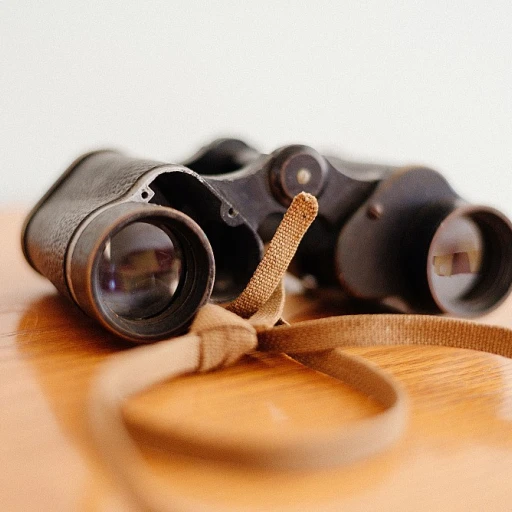
Understanding the Importance of Gratitude in the Workplace
The Role of Gratitude in Enhancing Employee Morale
In today's fast-paced work environment, acknowledging the hard work and dedication of employees is more crucial than ever. With the increasing demands and competitiveness, employees often strive tirelessly, showcasing their commitment and hard work to drive the company's success. A heartfelt thank you letter can serve as a powerful tool to instill a positive company culture by recognizing the contributions of the team.
Gratitude is not just about saying thank you; it's about recognizing the effort, time, and dedication employees put into their roles. When an employer openly appreciates their team’s commitment, it boosts morale and builds a sense of belonging, encouraging a positive work ethic. Employee recognition plays a vital role in nurturing a motivated and engaged workforce. When employees know their hard work will be recognized, it fosters a culture of appreciation and positivity.
Expressing gratitude through appreciation letters can effectively demonstrate how much the company's success relies on the perseverance and dedication of its workforce. This act of appreciation can significantly influence how employees feel about their roles and the organization, which in turn affects their performance and work dedication.
Furthermore, showing gratitude can help retain talent, reduce turnover, and build a cohesive team. By regularizing the practice of sending thank letters or appreciation letters, employers send a clear message: their employees’ efforts are both needed and appreciated. To further enhance the impact of gratitude in the workplace, consider exploring thoughtful presents for your team.
Key Elements of an Effective Thank You Letter
Crafting the Perfect Thank You Letter
When writing a thank you letter, it's important to keep some key elements in mind to ensure that the message truly resonates with your employees. These elements are crucial in conveying an authentic sense of appreciation that acknowledges their dedication and hard work. Employee recognition is not just about words; it's about making them feel valued within the company.- Start with a Personal Touch: Open your letter with a warm greeting, addressing your team or the individual employee by name. Using phrases like "Dear Employee" helps to set a friendly and inclusive tone for the rest of your message.
- Specific Acknowledgement: Be specific about the accomplishments or behaviors you are recognizing. Mention the specific contributions or times when the employee or team went above and beyond for the company. This shows that you're paying attention and value their efforts.
- Express Genuine Gratitude: Highlight the positive impact of their work on the team and the overall success of the business. Words like "thank," "appreciation," and "recognition" should be used to underline just how much you appreciate their work ethic and dedication.
- Encourage Continued Commitment: Share your hopes for future success and encourage continued dedication. This can motivate your employees to maintain their hard work and contributions.
- Sign Off with Best Wishes: Close the letter on a positive note, expressing optimism for the journey ahead. A simple farewell like "With appreciation" followed by your name adds a personal and professional touch.
Balancing Professionalism and Personal Touch
Striking the Right Balance Between Formality and Warmth
Creating a thank you letter to your staff involves a delicate dance between professionalism and a personal touch. Whether you are expressing appreciation for their hard work on a specific project or celebrating a collective achievement, your message should resonate on both an individual and team level. To achieve this harmony, consider the following aspects:- Tone and Language: While maintaining a professional tone is crucial, injecting genuine warmth and sincerity is what will make your letter stand out. Addressing your employees directly, for example, using phrases like “Dear Employee” or “To our Dedicated Team,” helps to cultivate a more personal connection.
- Specificity Matters: Be sure to reference specific contributions or instances of hard work and dedication. This not only shows that you recognize their individual efforts but also enhances the impact of your gratitude.
- Company Culture Reflection: Your letter should reflect the company culture you aim to foster. Is your workplace known for being relaxed and creative, or does it lean towards a more traditional approach? Tailoring your language to match the company’s spirit helps reinforce the ethos and values you wish to promote.
- Ending on a Motivational Note: Finish your letter with an encouraging sentiment. Acknowledging how their dedication drives the company’s success can inspire continued commitment and positivity.
Timing and Frequency: When to Send Thank You Letters
Choosing the Right Moment to Express Gratitude
Timing is a significant factor when it comes to crafting a thank you letter for your employees. A spontaneous note of appreciation can have a profound impact, but it's also important to recognize established moments throughout the year to dedicate time for expressing gratitude. Understanding the rhythm of your company's operations and the ebb and flow of demands can help you choose the optimal timing for your message.
Avoid drafts when the team is crunching hard deadlines. Instead, aim to send appreciation letters when employees have the bandwidth to reflect on their hard work and feel the positive reinforcement of their contributions. Key opportunities to send a thank you letter include:
- Project Completion: Once a team has wrapped up a significant project, celebrate their success and work ethic with a heartfelt thank you note.
- Work Anniversaries: Marking the milestones of employee tenure within the company provides a natural opportunity to express admiration and thank employees for their dedication.
- End of Fiscal Year: Sending appreciation letters at the conclusion of a business year can reinforce the connection between their hard work and the company's achievements.
- After Major Events: A successful event is often built on many unseen hands. Recognizing the team's commitment soon after the event keeps the momentum high.
The frequency also matters. Regular appreciation letters can instill a sense of value and respect in your team, nurturing a healthy company culture. Be careful not to overdo it though; genuine recognition should always precede the quantity of letters sent.
Examples of Thank You Letters for Different Occasions
Expressing Thanks for Various Achievements
Crafting thank you letters targeting specific achievements can bolster employee recognition and engagement. A well-written appreciation letter boosts morale and shows that you genuinely notice and value contributions.Recognition for Hard Work and Dedication
An appreciation letter for hard work should highlight the time and dedication an employee has put into their role. Here is an example: "Dear Employee, I want to express my heartfelt thanks for your extraordinary commitment and hard work on the latest project. Your dedication and attention to detail were instrumental in its completion and success. It is this kind of consistency and perseverance that makes our team so remarkable. Thank you for going above and beyond."Celebrating Milestones
Acknowledging milestones such as work anniversaries is crucial in an appreciation letter. Recognizing these events can foster a sense of belonging and loyalty: "Dear Employee, Congratulations on reaching your fifth year with our company! Your unwavering commitment and positive attitude are deeply appreciated by the entire team. Your contributions have been a key part of our success, and we look forward to many more milestones together. Thank you for being an integral part of our team."Expressing Gratitude for Team Efforts
Team achievements deserve recognition as well, emphasizing the company's appreciation for collective effort: "Dear Team, I am writing to convey my deepest gratitude for the tremendous work you did during our recent campaign. Each of you brought your best to the table, and the results speak for themselves. It was a true team effort, one that highlighted the strength of our team spirit. Thank you for your hard work, dedication, and most importantly, for your collaboration."Acknowledging Day-to-Day Contributions
Everyday tasks and consistent performance are just as worthy of recognition: "Dear Employee, Thank you for consistently bringing your best to work each day. Your dedication and positive attitude do not go unnoticed and are greatly appreciated by both your peers and leadership. I'm grateful for your continued hard work and commitment." Tailoring appreciation letters to suit different achievements helps to reinforce a culture of recognition and appreciation within the company. It’s an effective strategy to acknowledge contributions, whether they are monumental projects or everyday efforts that tie into the overall success of the company.Encouraging a Culture of Appreciation
Fostering an Environment of Acknowledgment
Creating a culture of appreciation within a company does not happen overnight. It involves consistent efforts to acknowledge employee contributions, fostering a positive work atmosphere, and encouraging team spirit. Gratitude in the workplace plays a vital role in employee commitment and overall success. Here’s how to nurture this environment effectively:- Establish Acknowledgment as a Norm: Encourage managers and team leaders to regularly recognize the hard work and dedication of employees. This could be in the form of verbal praise during meetings or a simple thank you letter.
- Celebrate Milestones: Recognize work anniversaries and individual achievements. An appreciation letter on such occasions can reaffirm an employee's value to the team.
- Open Channels for Recognition: Provide platforms where employees can express gratitude, such as a monthly appreciation event or a digital bulletin board. Let the team share thank you notes or stories of coworker support.
- Lead by Example: Senior leadership's engagement in writing thank you letters sets the tone for the company culture. When leaders show appreciation, it becomes contagious, motivating others to follow suit.













